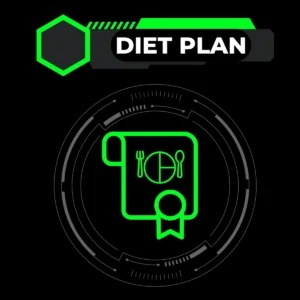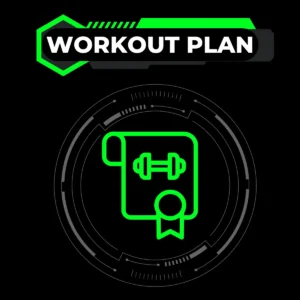The Hidden Cost of Neglecting Micronutrients
Hey team, let’s talk about the sports nutrition mistakes. Those tiny vitamins and minerals? They’re your body’s pit crew. Iron keeps your oxygen pipeline flowing, magnesium prevents muscle mutiny, and vitamin D is your skeleton’s BFF. Research from the Journal of the International Society of Sports Nutrition shows over half of endurance athletes ride the struggle bus with low vitamin D—don’t be part of that statistic.
Remember Chris Froome’s Tour de France fuel strategy? The man lived by this mantra: “Winning happens in the micronutrient margins.” Load up on spinach like Popeye, crunch almonds like they’re performance chips, and fish…yes, even that grilled salmon your girlfriend keeps pushing. Need a shortcut? Our personalized nutrition plans do the heavy lifting.
Snack attack solution: Swap those gas station protein bars for real food artillery. Roast sweet potatoes (nature’s orange power sticks) or mix chia seeds into yogurt. Pro move: Track eats with Cronometer—it’s like having a nutrition detective in your pocket.
Why More Protein Isn’t Always Better
Listen up, meatheads—I say this with love. Guzzling protein shakes like they’re going out of style? Your body can only handle a fist-sized portion per meal (20-40g). The rest? Flushed down the toilet or stored as emergency donut reserves. Science backs this: that 2021 Journal of Applied Physiology study proved 1.6g/kg/day gets same gains as higher doses.
Arnold dropped truth bombs back in ‘5: “If excess protein built champions, we’d all be mainlining egg whites.”
Here’s the playbook: Time your shots. Post-lift? Slam 20-30g whey with carbs—think banana smoothie. Vegan crew: Mix rice + pea protein like you’re crafting a muscle-building cocktail. Pair with moves from our exercise library for maximum synergy.
The Pitfalls of Fad Diets in Athletic Training
Keto cyclists, paleo powerlifters, juice-cleanse yogis—I see you. But here’s the harsh truth: Your workout probably hates your diet. When researchers compared low-carb athletes to carb-loaded peers in that 2018 Nutrients review, the cookie-eaters smoked them by 50% in 5K times.
| Diet | Pros | Cons for Athletes |
|---|---|---|
| Keto | Fat adaptation | Reduces explosive power |
| Paleo | Whole foods focus | Lacks grains for endurance |
| Vegan | High micronutrients | Requires B12/iron monitoring |
Tailor your fuel to the game. Marathoner in training? Carb-load like it’s your job. Wrestler cutting weight? Double down on chicken and greens. Always sweating buckets? Our hydration calculator is your new sidekick.
Timing Errors That Sabotage Recovery
That post-workout window isn’t bro science—it’s biology 101. Miss the 45-minute protein pulse and you’re leaving 22% recovery gains on the table (per University of Texas research). Pro tip: Blend fast carbs + protein—chocolate milk works wonders. Allyson Felix ain’t messing around: “It’s my secret weapon after crushing sprints.”
Night owls, listen up: Casein protein before bed is like slow-drip muscle IV. Want the full recovery playbook? Raid our latest science blog for meal-prep hacks.
Overhydration: When Water Becomes Dangerous
Chugging water like you’re in a frat house contest? Pump the brakes. Mayo Clinic data shows 14% of marathon ER visits stem from diluted sodium levels. Telltale signs: Peeing clear every 20 minutes or feeling like a water balloon.
| Hydration Strategy | Risk Level |
|---|---|
| 500ml/hour with electrolytes | Low |
| 1L+ water/hour without sodium | High |
Weigh yourself naked pre/post workout. Scale up? You’ve overdone H2O. Swap plain water for salty alternatives—coconut water or LMNT gets my vote.
Mismatched Nutrition for Sport-Specific Demands
Using the same nutrition plan for swimming and soccer is like serving steak at a triathlon. Swimmers—load up on omega-3s for that chilly pool armor. Soccer players—you need quick-burn carbs like toast with jam. Powerlifters: Creatine’s your new best friend.
Ultra-runner Courtney Dauwalter schooled us: “I flip between maple syrup gels and pickle juice during ultras—tastes weird but keeps the engine purring.” Test fuel combos in practice, not on race day.
How to Audit and Fix Your Nutrition Plan
Ready to play nutrition detective? Step 1: Track every bite for 7 days—yes, even that “one” cookie. Compare to IOM guidelines. Blood work showing funky numbers? Don’t guess—team up with our sports dietitians to crack the code.
FAQ
Can over-reliance on supplements harm performance?
Absolutely. Think of supplements as backup singers—they can’t carry the whole show. Too much protein powder? Your kidneys aren’t fans. Synthetic vitamins? Your body absorbs them like cheap sunglasses filter light.
What are signs of electrolyte imbalance during exercise?
If your calves cramp like they’re auditioning for Riverdance or your head feels like a tilt-a-whirl, reach for electrolytes STAT. Pro move: Keep salty nuts in your gym bag.
Is carbohydrate loading necessary for all endurance events?
Only if you’re going long—like marathon or triathlon long. For anything under 90 minutes, focus on daily carb intake. Nobody needs a pasta binge before Tuesday night Zumba.



